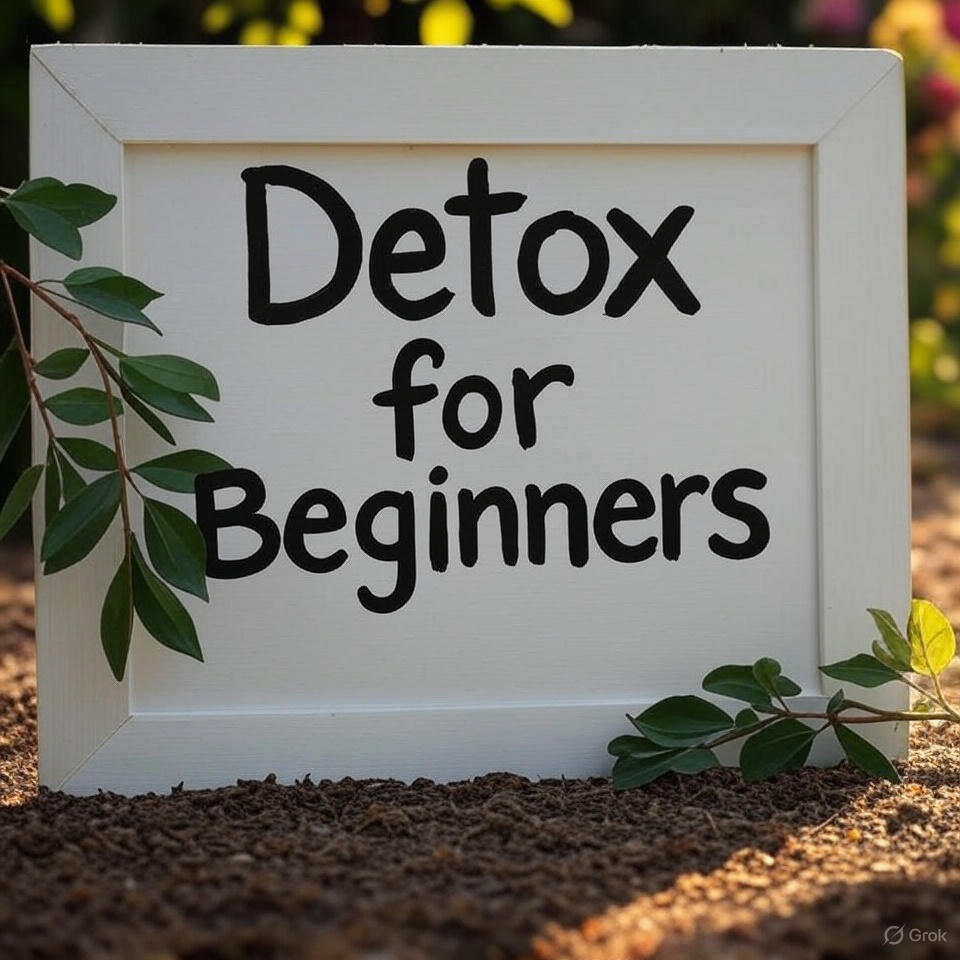Starting a detox can feel overwhelming, especially if you’re new to it. With so many claims and detox programs out there, you might wonder where to begin. The good news is, a detox doesn’t need to be complicated or extreme. It’s about giving your body a break from toxins and adopting healthier habits. In this guide, you’ll learn what detox is, debunk common myths, and discover simple steps to kick off your healthy journey.
Understanding Detox: What It Is and Why It Matters
What Is a Detox?
A detox is a process that helps your body eliminate harmful substances. It’s not about starvation or weird cleanses; it’s about supporting your body’s natural ability to heal and refresh. Many people think detox diets are just juice fasts, but there’s more to it. You can choose small changes that encourage your body to work better.
The Science Behind Detoxification
Your body is well-equipped to detox naturally. Your liver, kidneys, skin, and digestive system work together to clear out toxins. Everyday exposures like processed foods, pollution, and chemical cleaners can overburden these organs. A detox supports these processes, helping you feel more energized and healthy.
Potential Benefits of a Detox
When done right, a detox can boost your health. Many people report more energy and better digestion. Others see improvements in their skin and even find it easier to manage weight. But remember, detox isn’t magic—it’s a step toward healthier living.
Common Types of Detox Programs
Juice Cleanses
Pressed Juice Cleanse involve drinking only fruit and vegetable juices for several days. They often last from 1 to 7 days. While some say juice cleanses give your digestive system a break, experts warn they can be low in protein and fiber. It’s best to take care and not rely on them long-term.
Food-Based Detoxes
These focus on eating whole foods, cutting out processed items, sugar, and alcohol. Eliminations diets like Whole30 or specific plans target certain triggers. They help you identify foods that may cause bloating or fatigue. This approach supports health without extreme fasting.
Herbal and Supplement Detoxes
Herbal teas, supplements, or natural cleanses fall into this category. Many products claim to detox your body with herbs or powders. Be cautious—consult health professionals before trying these, especially if you have health issues or are pregnant.
Digital Detoxes
Reducing screen time can also boost your well-being. Taking breaks from devices minimizes stress and improves mental clarity. It’s a detox for your mind, helping you reconnect with the world around you.
Preparing for Your First Detox: Essential Tips
Consult Healthcare Professionals
Always check with your doctor before starting. If you have health problems, are pregnant, or are taking medications, expert advice ensures safety and better results. Detox Orange County, CA, can help you detox your body. Visit them today.
Set Clear, Realistic Goals
Are you looking for more energy or better digestion? Focus on specific goals. Keep expectations real; don’t expect overnight changes. Small steps lead to lasting habits.
Gradual Transition or Cold Turkey?
Ease into your detox if possible. Cutting out everything suddenly can cause discomfort like headaches or fatigue. A gradual shift helps your body adjust comfortably.
Stock Up on Detox-Friendly Foods and Supplies
Prepare your kitchen with fresh fruits, vegetables, herbal teas, and water filters. Avoid processed snacks, sugary drinks, and junk food. Clean eating from the start makes your detox smoother.
Implementing Your Detox Safely and Effectively
Staying Hydrated
Water is your best friend during a detox. Aim for at least 8 glasses daily. Add slices of lemon, cucumber, or mint for flavor. Proper hydration helps flush out toxins faster.
Incorporate Physical Activity
Gentle exercise like walking, yoga, or stretching supports your body’s natural detox pathways. Moving helps circulation and lymph flow. Start slow and listen to your body.
Listening to Your Body
Pay attention to how you feel. Mild detox symptoms like fatigue or headaches can happen but shouldn’t linger. If discomfort intensifies, consider easing up or stopping.
Maintaining Balance and Sustainability
After your detox, ease back into normal eating gradually. Continue including whole foods, vegetables, and hydration. Adopt healthy habits that last beyond the detox to improve long-term health.
Common Myths and Misconceptions About Detox
Detox Means Starving or Fasting
Many believe detox involves starving for days. That’s not true. Effective detoxing includes balanced eating and hydration. Your body needs nutrients to thrive.
Longer Detoxes Are More Effective
Some think the longer the better. That’s risky. Extended fasting can cause nutrient deficiencies. Short, guided detoxes are safer and often more effective.
Detox Is a Quick Fix
A common myth suggests detox will solve all health problems instantly. But lasting health requires ongoing changes. Detox should be part of a healthy lifestyle, not a one-time fix.
All Detoxes Are Safe
Not every detox plan is safe. Some extreme cleanses can cause harm. Always consult health professionals and listen to your body when trying new routines.
Expert Insights and Scientific Perspectives
Health experts agree that supporting your body’s natural detox systems is best done with balanced nutrition. Nutritionist Jane Smith advises, “Focus on eating whole foods, staying hydrated, and getting plenty of sleep.” Recent studies show that short-term detoxes can help improve energy, but long-term health depends on consistent healthy habits. Reputable organizations, like the National Institutes of Health, highlight that there’s limited scientific evidence supporting extreme cleanses. They recommend moderation and professional guidance for any detox plan.
Conclusion
Starting a detox is a great way to boost your health, but it needs to be done smartly. Remember to begin gradually, consult healthcare providers, and focus on whole, natural foods. Pay attention to your body and avoid common myths that can lead to unhealthy habits. Think of detox as a small step towards a balanced, sustainable lifestyle—not a quick fix. When approached with care, detoxing can be a refreshing part of your journey toward a healthier you.



